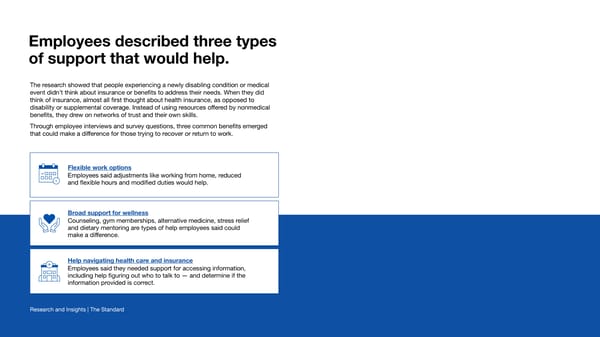Employees described three types of support that would help. The research showed that people experiencing a newly disabling condition or medical event didn’t think about insurance or bene昀椀ts to address their needs. When they did think of insurance, almost all 昀椀rst thought about health insurance, as opposed to disability or supplemental coverage. Instead of using resources o昀昀ered by nonmedical bene昀椀ts, they drew on networks of trust and their own skills. Through employee interviews and survey questions, three common bene昀椀ts emerged that could make a di昀昀erence for those trying to recover or return to work. Flexible work options Employees said adjustments like working from home, reduced and 昀氀exible hours and modi昀椀ed duties would help. Broad support for wellness Counseling, gym memberships, alternative medicine, stress relief and dietary mentoring are types of help employees said could make a di昀昀erence. Help navigating health care and insurance Employees said they needed support for accessing information, including help 昀椀guring out who to talk to — and determine if the information provided is correct. Research and Insights | The Standard
 Moments of Truth How Employees Facing a Disabling Event Experience Benefits Page 3 Page 5
Moments of Truth How Employees Facing a Disabling Event Experience Benefits Page 3 Page 5